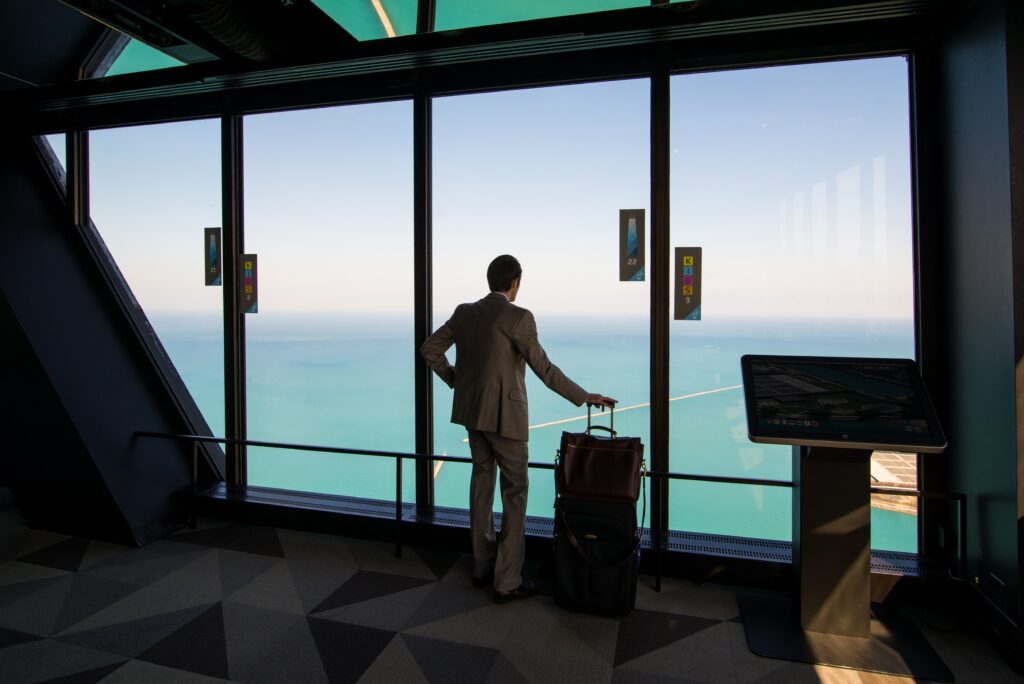
Business travel is a fundamental aspect of many professions, providing opportunities for networking, client engagement, and knowledge expansion. Traveling, while thrilling, can also come with several risks, especially in unfamiliar environments. These can range from minor inconveniences to significant threats to one’s personal safety.
As such, professionals must embark on their business travels equipped with safety strategies and precautions. Recognizing this necessity, we aim to provide seven practical business travel safety tips. These tips help you navigate your business journey safely and with greater peace of mind.
1. Keep Personal And Professional Information Secure
Securing personal and professional information is pivotal to business travel safety, especially in the digital age where cybercrime is prevalent. Ensure all your devices, such as laptops, smartphones, or tablets, are password-protected. Regular password updates enhance security.
Avoid public Wi-Fi for sensitive transactions as they often lack robust security measures, making them susceptible to data theft. Opt for personal data or reliable alternatives when necessary.
Utilize a Virtual Private Network (VPN) to create a secure internet connection, adding an extra layer of encryption to your transactions, making data interception by unauthorized individuals more challenging. Following these business travel safety tips helps safeguard your information while on the move.
2. Stay In Reputable Accommodations

Location and security are paramount when choosing accommodations for business travel, marking a significant aspect of business travel safety.
Opt for reputable accommodations, well-known chains or brands are preferable as they often have stringent safety measures ensuring a safer stay. Customer reviews and ratings can provide insight into their safety protocols.
Ensure your chosen accommodation has modern security systems, including secure lobby access, in-room safes, and elevator access to enhance your safety during your stay.
Consider using personal safety devices like DoorJammer to reinforce your room door against unauthorized access. It’s light and easy to install but provides a robust physical barrier against any perpetrator or threat.
Prioritizing safe and reputable accommodations is a simple yet effective step towards ensuring a secure business trip, impacting your comfort and safety.
3. Maintain Regular Communication
Communication is a powerful tool, especially regarding enhancing safety during business travel. Regularly staying in touch with your colleagues, family, or friends can be a valuable safety net during your travels.
Throughout your journey, keep your office and family updated on your whereabouts. Regular check-ins are great for coordination and ensure others know your location and schedule. This means in case of an emergency, help will be swiftly available.
Another good communication practice while traveling for business is sharing your itinerary and accommodation details with trusted individuals. Whether you leave a schedule at the office with your secretary or text the hotel address to a close family member, the shared information could be valuable if your security is breached.
4. Carry Essential Health Supplies
Health preparedness is crucial to business travel safety, ensuring readiness for medical emergencies.
Remember to pack necessary medications, including any prescribed medicines and basics like pain relievers and band-aids to cover unanticipated delays.
A basic first-aid kit is beneficial, especially in remote destinations or packed schedules, enabling you to handle minor accidents.
Know the location of nearby healthcare facilities like hospitals and pharmacies. Check this information in advance to expedite urgent medical care.
Carrying essential health supplies and knowing where to find medical support are proactive measures to prevent minor health issues from escalating during your business trip, enhancing business travel safety.
5. Prepare for Unexpected Circumstances

Unexpected circumstances are common during travels, and preparedness is key in navigating such situations, forming an integral part of business travel safety tips.
A contingency plan for emergencies such as natural disasters or political unrest is wise. This includes checking risk advisory platforms for updates, knowing the quickest routes out of the city, identifying safe zones, and having essential contact numbers on hand.
Keep digital and physical copies of important documents like your passport or company ID. Email scanned copies to yourself for easy access across devices and keep photocopies stashed separately as a backup.
Conclusion
Business travel is crucial in many professions, but safety should never be compromised. The provided business travel safety tips, ranging from securing personal information, choosing reliable accommodations, observing local laws, maintaining communication, carrying health supplies, to preparing for emergencies, are vital precautionary measures for a safe travel experience.
Adhering to these business travel safety tips mitigates possible travel risks and promotes a safety-first approach. It’s crucial to consider all these tips collectively as they form a robust defense against common travel hazards.
Whether you are a seasoned business traveler or a newcomer, integrating these safety measures into your travel plans significantly contributes to a more secure and smoother business travel experience. Travel smart, stay safe, and make each journey memorable.